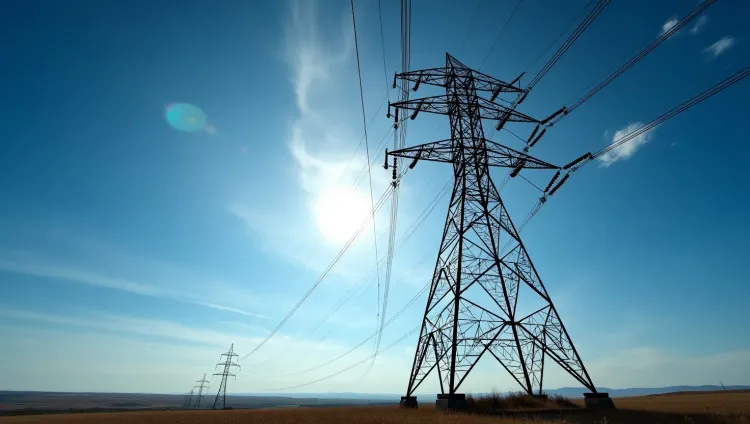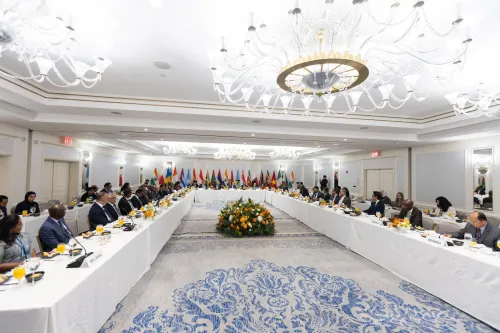How is Mahavitaran Reducing Electricity Tariffs by Rs 66,000 Crore?

Synopsis
Key Takeaways
- Electricity tariffs reduced by Rs 66,000 crore over five years.
- Focus on renewable energy sources like solar and wind.
- Tariffs will not increase for the next five years.
- Smart meters enhance billing accuracy and consumer awareness.
- Maharashtra aims for sustainable energy solutions.
Mumbai, June 26 (NationPress) The CMD of the Maharashtra State Electricity Distribution Company (Mahavitaran), Lokesh Chandra, announced on Thursday that the reduction in electricity tariffs is attributed to a significant saving of Rs 66,000 crore in the company's power purchase expenses over the next five years.
He emphasized that these savings will be transferred to consumers, leading to lower electricity tariffs for the upcoming five years.
Chandra informed reporters that Mahavitaran has strategically planned for adequate electricity supply to meet the future demands of Maharashtra until the financial year 2034-35.
In alignment with this vision, power purchase agreements have been finalized to enhance the state's power capacity by 45,000 MW over the next five years, with a primary focus on renewable energy sources, including solar, wind, pump storage, and battery storage.
“The availability of electricity from these renewable sources at lower rates will result in savings of Rs 66,000 crore for the company over the next five years, benefiting domestic, industrial, and commercial consumers through reduced tariffs. This achievement is the result of planned efforts over the past two and a half years,” he remarked.
He further noted that the transformative initiative, Mukhyamantri Saur Krishi Vahini Yojana 2.0 (MSKVY 2.0), has been crucial in minimizing power purchase costs.
Under this scheme, a 16,000 MW solar power project will provide farmers with daytime power for agricultural pumps at an average cost of Rs 3 per unit. Such innovative strategies are expected to substantially reduce Mahavitaran's expenses.
Chandra explained that Mahavitaran is prioritizing renewable energy, assuring that the electricity tariff from solar energy will remain unchanged for the next 25 years, while pump storage rates will be stable for 40 years. With the provision of affordable and consistent electricity, further reductions in tariffs may be anticipated after five years. He confirmed that tariffs for domestic, industrial, and commercial consumers will not rise in the next five years; instead, they will only decrease.
The Maharashtra Electricity Regulatory Commission has mandated an extra discount of 80 paise per unit for electricity consumed between 9 am and 5 pm for domestic consumers equipped with smart meters. When questioned, Chandra reassured that this discount will persist.
“Smart meters are designed to provide precise billing and real-time consumption updates to consumers. In regions where smart meters have been installed, complaints regarding electricity bills have dropped significantly,” he stated.
Chandra acknowledged the concerns regarding higher industrial electricity rates in Maharashtra compared to other states but asserted that this perception is misleading.
“Considering the concessions available to industries regarding electricity rates, they are currently competitive. Moreover, a decision has been made to further reduce these rates. Over the next five years, industrial electricity tariffs in Maharashtra will decrease and become more favorable than those in states with high industrial demand like Gujarat and Tamil Nadu,” he concluded.









